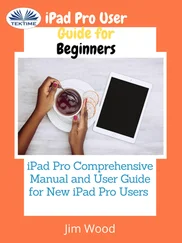Economics: The User’s Guide - Ha-Joon Chang

To my parents
The idea of writing an introduction to economics that is accessible to the broadest possible audience was first raised by Penguin through my then editor, Will Goodlad, in the autumn of 2011. Will has since then moved on to other things, but he provided helpful inputs into the shaping and the writing of the book, even while he was going through an intense phase of establishing a new venture.
The book could not have been written without Laura Stickney, my editor. It must have been difficult for her, as she had to put up with periods of silence and numerous rewrites of the earlier chapters. However, she put her faith in me and saw me through the process, with only the gentlest prodding and with an enormous amount of excellent advice, both substantive and editorial. I cannot thank her more.
Ivan Mulcahy, my literary agent, as usual, provided very important input. In particular, his suggestions on some of an earlier incomplete draft breathed life back into the book, when the writing process was in danger of losing its momentum, and I was in danger of losing my faith in the book myself.
Peter Ginna, my US editor, also gave me a lot of important input, especially in the final phase of the book.
Numerous friends provided me with help and encouragement, but three individuals deserve a special mention. Duncan Green, William Milberg and Deepak Nayyar read all the chapters (some of them in more than one version) and gave me extremely helpful comments. They also gave me moral support through difficult phases of the project, of which there were many.
Felix Martin provided very important inputs into the shaping of the book from the stage when it was a mere plan. He also read several chapters of the book and given me very helpful comments. Milford Bateman read almost all the chapters of the book and offered very useful comments. Finlay Green also read most of the chapters and suggested many ways in which I could improve the accessibility of my writing.
I would also like to thank many people who read various versions of the book plan or chapters of the book and gave me useful comments. They are, in alphabetical order, Jonathan Aldred, Antonio Andreoni, John Ashton, Roger Backhouse, Stephanie Blankenberg, Aditya Chakrabortty, Hasok Chang, Victoria Chick, Michele Clara, Gary Dymski, Ilene Grabel, Geoffrey Hodgson, Adriana Kocornik-Mina, David Kucera, Costas Lapavitsas, Sangheon Lee, Carlos Lopez-Gomez, Tiago Mata, Gay Meeks, Seumas Milne, Dimitris Milonakis, Brett Scott, Jeff Sommers, Daniel Tudor, Bhaskar Vira and Yuan Yang.
My PhD student and research assistant, Ming Leong Kuan, provided me with extremely efficient and creative help in securing and processing the necessary data for the book. Given the importance that I am attaching to ‘real-life numbers’ in this book, Ming Leong’s assistance was essential in making the book what it is.
During the two years in which I was writing the book, Hee-Jeong, my wife, Yuna, my daughter, and Jin-Gyu, my son, suffered a lot but gave me a huge amount of love and support. Hee-Jeong and Yuna also read many of the chapters and gave me a lot of very helpful comments. Jin-Gyu kept reminding me that there are more important things in life than economics, such as Dr Who, Hercule Poirot and Harry Potter.
My little family in England would not have had the solidity it has without the love of our extended family back in Korea. My parents-in-law have showered us with a lot of loving support. My own parents have been a continuous source of love and encouragement for us. Above all, I would not be what I am today without their sacrifice and nurturing. I dedicate the book to them.
Why Bother?
WHY DO YOU NEED TO LEARN ECONOMICS?

Why Are People Not Very Interested in Economics?
Since you have picked up this book, you probably have at least a passing interest in economics. Even so, you may be reading this with some trepidation. Economics is supposed to be difficult – perhaps not physics-difficult but demanding enough. Some of you may remember hearing an economist on the radio making an argument that sounded questionable but accepting it because, after all, he is the expert, and you haven’t even read a proper book on economics.
But is economics really that difficult? It doesn’t need to be – if it is explained in plain terms. In my previous book, 23 Things They Don’t Tell You about Capitalism , I even stuck my neck out and said that 95 per cent of economics is common sense – made to look difficult, with the use of jargons and mathematics.
Economics is not alone in appearing to be more difficult to outsiders than it really is. In any profession that involves some technical competence – be it economics, plumbing or medicine – jargons that facilitate communication within the profession make its communication with outsiders more difficult. A little more cynically, all technical professions have an incentive to make themselves look more complicated than they really are so that they can justify the high fees their members charge for their services.
Even considering all this, economics has been uniquely successful in making the general public reluctant to engage with its territory. People express strong opinions on all sorts of things despite not having the appropriate expertise: climate change, gay marriage, the Iraq War, nuclear power stations. But when it comes to economic issues, many people are not even interested, not to speak of not having a strong opinion about them. When was the last time you had a debate on the future of the Euro, inequality in China or the future of the American manufacturing industry? These issues can have a huge impact on your life, wherever you live, by affecting, positively or negatively, your job prospects, your wage and eventually your pension, but you probably haven’t thought about them seriously.
This curious state of affairs is only partly explained by the fact that economic issues lack the visceral appeals that things like love, dislocation, death and war have. It exists mainly because, especially in the last few decades, people have been led to believe that, like physics or chemistry, economics is a ‘science’, in which there is only one correct answer to everything; thus non-experts should simply accept the ‘professional consensus’ and stop thinking about it. Gregory Mankiw, the Harvard economics professor and the author of one of the most popular economics textbooks, says: ‘Economists like to strike the pose of a scientist. I know, because I often do it myself. When I teach undergraduates, I very consciously describe the field of economics as a science, so no student would start the course thinking he was embarking on some squishy academic endeavor.’ [1] 1. These are the first sentences of his article ‘The macroeconomist as scientist and engineer’, Journal of Economic Perspectives , vol. 20, no. 4 (2006).
As it will become clearer throughout the book, however, economics can never be a science in the sense that physics or chemistry is. There are many different types of economic theory, each emphasizing different aspects of complex reality, making different moral and political value judgements and drawing different conclusions. Moreover, economic theories constantly fail to predict real-world developments even in areas on which they focus, not least because human beings have their own free will, unlike chemical molecules or physical objects. [2] 2. For a similar view, see the article, ‘Is economics a science?’ by Robert Shiller, one of the 2013 Nobel Economics laureates. The article can be downloaded at: http://www.theguardian.com/business/economics-blog/2013/nov/06/is-economics-a-science-robert-shiller.
Читать дальше














